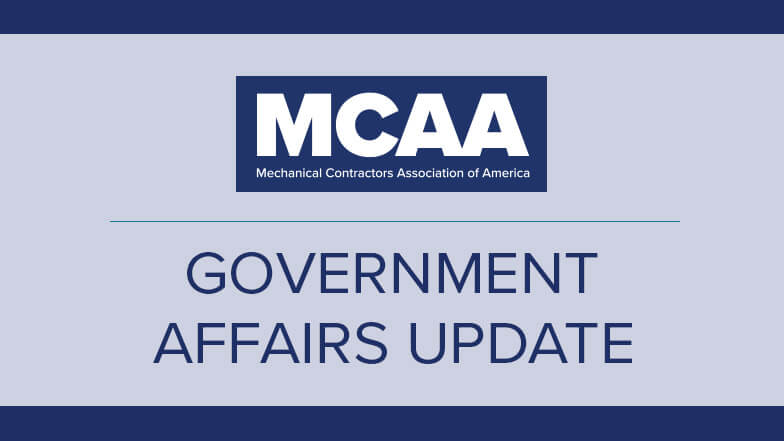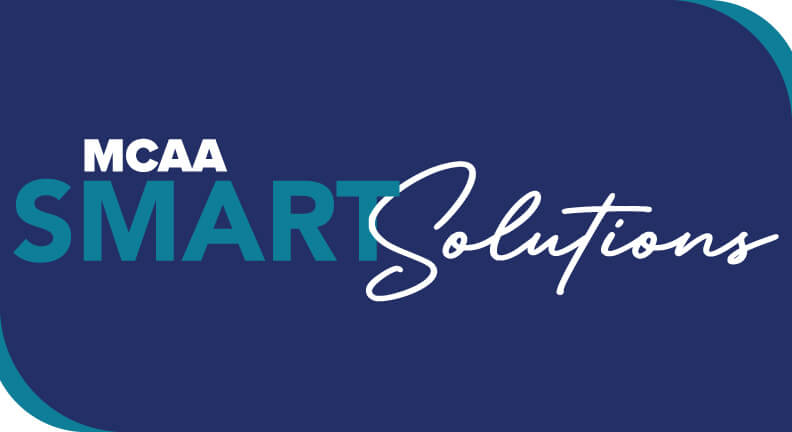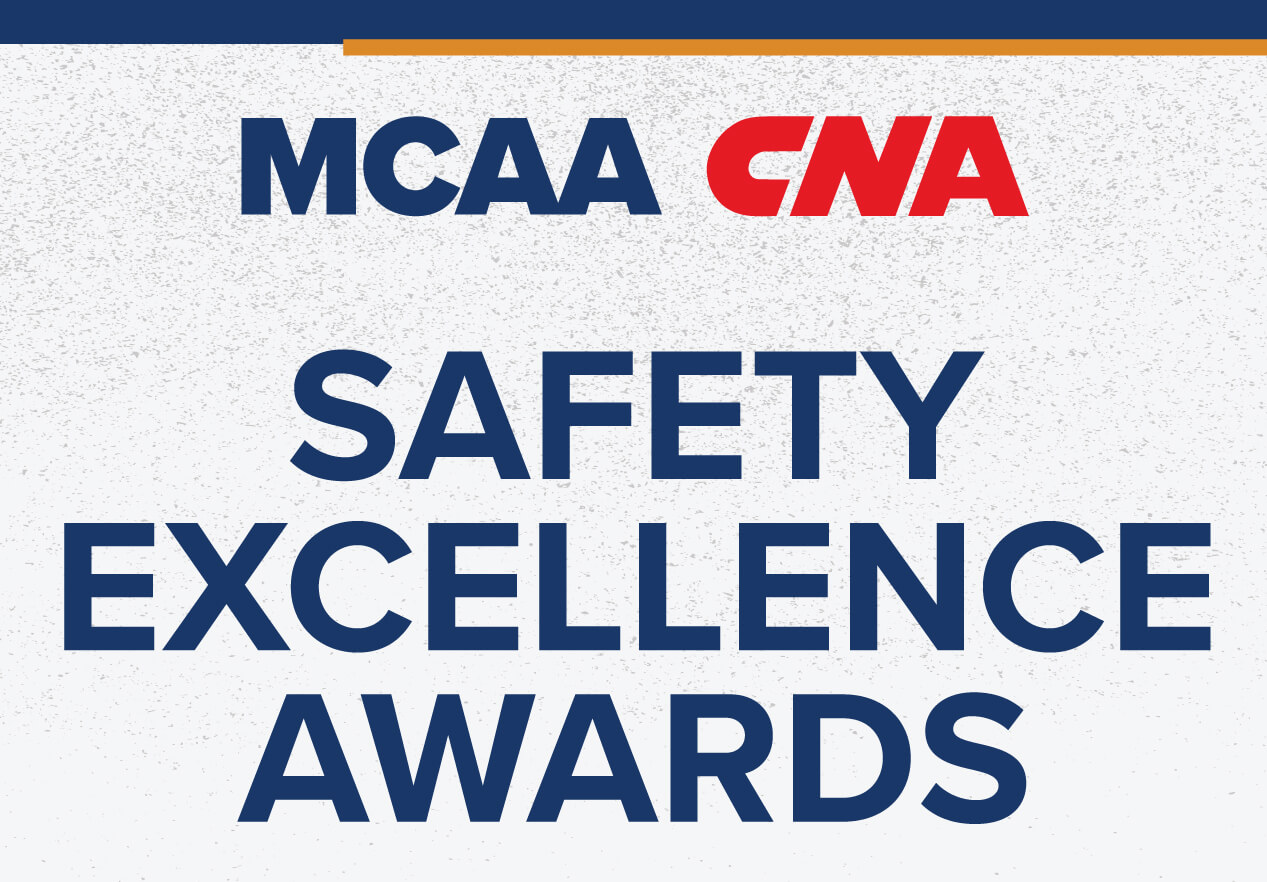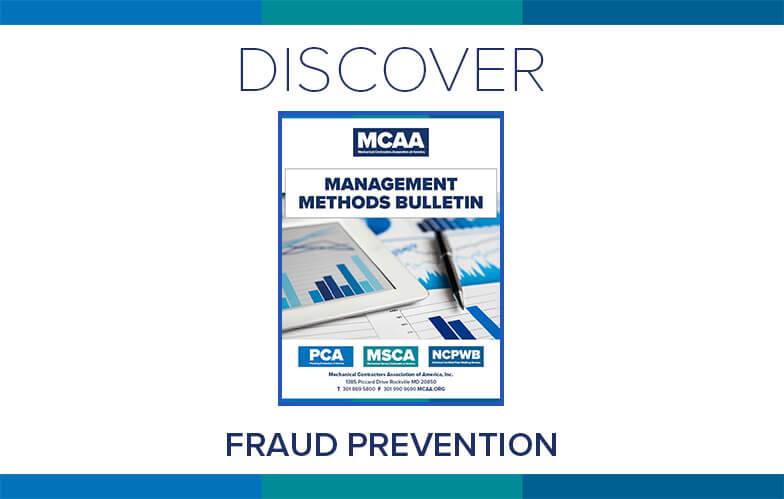
As part of its ongoing commitment to protecting your livelihood and setting the stage for a bright future, MCAA has secured the services of Longbow Public Policy Group to advise our MCAA Government Affairs Committee (GAC). GAC Chair, Jim Gaffney will be passing along information relative to our industry on a regular basis.
On Monday, December 23, 2024 MCAA Lobbying Firm, Longbow Public Policy Group provided the following information:
Trump Transition
MCAA-Supported Labor Secretary-Designate Chavez-DeRemer Begins Hill Meetings
Last week, President-elect Donald Trump’s MCAA-supported Labor Secretary-designate Rep. Lori Chavez-DeRemer (R-OR) began making the rounds on Capitol Hill to secure support for her nomination as the MCAA policy team continues reaching out to Senate offices in support of her nomination. As Chavez-DeRemer made the rounds on the Hill this week, Trump ally Steve Bannon sent out a warning to Republican Senators that if they do not “toe the line” and vote for Trump’s nominees “they will get a MAGA primary” in the next election. Bannon’s threat comes as incoming Senate Health, Education, Labor, and Pensions Committee Chair Bill Cassidy (R-LA) already faces a GOP primary challenge from Louisiana State Treasurer John Fleming, who launched his challenge after Cassidy publicly questioned Rep. Chavez-DeRemer’s nomination over concerns about her co-sponsorship of the Protecting the Right to Organize Act during the 118th Congress.
Biden Administration
Biden Designates NLRB Member Gwynne Wilcox as Chair of the New NLRB
Last Tuesday, President Joe Biden designated Gwynne Wilcox as Chair of the National Labor Relations Board (NLRB) following the Senate’s failure two weeks ago to confirm previous Chair Lauren McFerran to another five-year term. Chair Wilcox is the first Black woman to Chair the NLRB and the first Black woman to serve on the Board since its inception in 1935. She was confirmed by the Senate on September 6, 2023, for a second term ending on August 27, 2028. Prior to her appointment, Wilcox was a senior partner at Levy Ratner, P.C., a New York City labor and employment law firm, and served as Associate General Counsel of SEIU 1199 United Healthcare Workers East and as a labor representative to the NYC Office of Collective Bargaining.
EEOC Fact Sheet on Application of Federal Employment Discrimination Laws to “Wearables”
Last Thursday, the Equal Employment Opportunity Commission (EEOC) published a new fact sheet entitled “Wearables in the Workplace: The Use of Wearables and Other Monitoring Technology Under Federal Employment Discrimination Laws,” which discusses the application of federal employment discrimination laws to the use of wearable technologies (wearables) that can be used to track an employee’s location, heart rate, electrical brain activity, or fatigue. The fact sheet says that federal employment discrimination laws apply to an employer’s collection and use of information from wearables and addresses the need for employers to provide reasonable accommodations under the Americans with Disabilities Act (ADA) and the Pregnant Workers Fairness Act related to wearables. It also warns employers that using watches, rings, glasses, helmets, and other wearables to collect information about a worker’s health and biometric data may constitute a “medical examination” as defined under the ADA. Additionally, the fact sheet notes that if a wearable requires an employee to provide health information (including while setting up the device) an employer may be making “disability-related inquiries” for ADA purposes. Moreover, the EEOC explains that an employer’s improper use of information collected by wearables may raise concerns under other federal anti-discrimination laws—especially if employers use data from wearables to determine sex, age, genetic information, disability, or race to take an adverse action against an employee. The document provides examples of practices employers should avoid when directing use of wearables by their workers.
Congress
Senate Passes MCAA-Supported Water Resources Development Act, Sending Bill to Biden
Last Wednesday, the MCAA realized a significant win as the Senate voted 97-1 to overwhelmingly pass the Water Resources Development Act (WRDA) that the MCAA and our partners in the United Association (UA) have been lobbying to enact since this summer. Sen. Mike Lee (R-UT) was the lone senator to oppose the bill, which now heads to President Joe Biden to be signed into law.
The legislation provides critical water resources infrastructure improvements, including: (1) $17 billion to the U.S. Army Corps of Engineers (USACE) for water-related infrastructure projects for flood management, ecosystem restoration, and navigation; (2) $2.1 billion for a coastal risk management system in the South Shore of Staten Island, including a levee and vertical flood wall; (3) $320 million to the USACE for design and construction of the North Feeder Stormwater Treatment Area in southern Florida; (4) $50 million to the USACE to implement studies and projects to control and reuse stormwater related to flood control efforts; (5) $200 million for water and wastewater infrastructure in San Diego County, California; and (6) $100 million for water and wastewater projects in New York. The bill also authorizes from 2025-2029: (1) $35 million in assistance to communities with decommissioned nuclear plants; (2) $50 million for workforce training grants; (3) $75 million for assistance to coal communities; and (4) $20 million for critical supply chain site development.
House Paid Leave Working Group Seeks Feedback on Bills to Expand Paid Family Leave
Last Tuesday, the bipartisan House Paid Family Leave Working Group released two discussion drafts of legislation to expand paid family leave and requested feedback on the drafts in the form of written comments that may be submitted to PaidLeave.Feedback@mail.house.gov by Friday, Janaury 10, 2025. The first bill, the Paid Family Leave Public-Private Partnerships Act, would establish a competitive grant program run by the U.S. Department of Labor as an incentive for states to establish their own paid family leave programs that utilize a public-private partnership model. Draft bill text is available here and a summary is available here. The second bill, the Interstate Paid Leave Action Network Act, is intended to coordinate and harmonize paid leave benefits across states to make it easier for people to access paid family leave and for states to connect with one another. Draft bill text is available here and a summary is available here.
House Lawmakers, As Well As Senate Democrats, Finalize Committee Leadership Rosters
Last week, House Republicans and Democrats, as well as Senate Democrats, finalized their committee leadership assignments for the 119th Congress, which will still need to be ratified by votes in the full House and Senate. The House Republican roster of incoming Committee Chairs is available here, the House Democratic roster of incoming Committee Ranking Members is available here, and the Senate Democratic list of Committee Ranking Members is available here. While Senate Republicans have not released their finally roster of Committee Chairs for the 119th Congress, incoming Senate Majority Leader John Thune (R-SD) said last week that he hoped to finalize Committee assignments before the holidays, noting that “it always takes time to get those sorts of agreements.”
Decarbonization
As the MCAA policy team continues to engage the White House and Congress on issues surrounding decarbonization, there were several items that we wanted to make you aware of from last week:
DOE Requests Comments on Environmental Impact Statements for Three Hydrogen Hubs
Last Wednesday, the MCAA saw progress on scalable deployment of hydrogen stemming from the ongoing implementation of the Bipartisan Infrastructure Law with the Energy Department’s release of requests for comments on impact statements (EISs) for three hydrogen hubs across the country. The hydrogen hubs are: (1) the Appalachian Hydrogen Hub (in Ohio, Pennsylvania, and West Virginia); (2) the Pacific Northwest Hydrogen Hub (in Washington, Oregon, and Montana); and (3) the California Hydrogen Hub. Comments on these EISs are due by March 3, 2025 and can be submitted through the federal eRulemaking portal here using: (1) Docket No. DOE-HQ-2024-0082 for the Appalachian Hydrogen Hub; (2) Docket No. DOE-HQ-2024-0094 for the Pacific Northwest Hydrogen Hub; and (3) Docket No. DOE-HQ-2024-0087 for the California Hydrogen Hub. The requests for comment also note upcoming public meetings about each of these hydrogen hubs.
For the Appalachian Hydrogen Hub, the Energy Department hold one virtual public scoping meeting on Thursday, January 16, 2025 from 6 p.m.–8 p.m. EST. The Department will also hold three in-person public scoping meetings on the Appalachian Hydrogen Hub. Dates, times, and locations are to be determined and will be shared no less than 15 days before the meetings along with details on how to participate in the virtual and in-person public scoping meetings on the DOE’s dedicated web page for this EIS: DOE/EIS-0569: Appalachian Hydrogen Hub | Department of Energy.
For the Pacific Northwest Hydrogen Hub, the Energy Department will hold one virtual public scoping meeting on Wednesday, January 22, 2024 at 6 p.m.–8 p.m. Pacific Time. The Department will also hold two in-person public scoping meetings. Dates, times, and locations for the in-person meetings are to be determined no less than 15 days before the meetings. Detailed information for registering and participating in the virtual and in-person public scoping meetings will be available on the DOE’s web page for this EIS: DOE/EIS-0571: Pacific Northwest Hydrogen Hub | Department of Energy.
For the California Hydrogen Hub, the Energy Department will hold one virtual public scoping meeting on Tuesday, January 28, 2025 from 4:30 p.m.–7:30 p.m. Pacific Time. The Department will also hold three in-person public scoping meetings. Dates, times, and locations and how to register and participate in the virtual and in-person meetings are to be determined and will be shared no less than 15 days before the meetings on the web page for this EIS: DOE/EIS-0570: California Hydrogen Hub | Department of Energy. In addition, the Department will have an open virtual public meeting space available for the public. This public meeting space will open on Monday January 20, 2025, and stay open through the duration of the scoping period.
Biden Administration Releases Its Long-Awaited Study on Liquefied Natural Gas Exports
MCAA did suffer a setback on the decarbonization front last Tuesday when the Biden Administration released its long-awaited study on liquefied natural gas (LNG) exports that was announced when the Administration paused the issuance of LNG export licenses in January 2024. The study will make it more difficult for the incoming Trump Administration to approve new export licenses and provides opponents of LNG with helpful data to contest new export permits. Specifically, the Biden Administration concluded that increases in LNG exports displace more renewable energy than coal globally and that unrestricted LNG exports would raise wholesale U.S. natural gas prices by 30%, increasing costs for the typical American household by well over $100 a year by 2050. In a media call, Biden Energy Secretary Jennifer Granholm summed up the report, saying that increasing LNG exports “would surely generate more wealth for the LNG industry, but American consumers and communities and the climate would pay the price.” The Biden Energy Department’s statement on the final analysis of authorizations for the export of LNG to non-free-trade-agreement countries is available here. While the report is final, the Department plans to publish it for a 60-day comment period “to inform decision-making going forward.”
Infrastructure Funding Continues to Flow from President Biden’s “Investing in America” Agenda
As the end of President Biden’s term draws near, MCAA has been pressing the Biden Administration to press forward with funding awards under MCAA-supported laws like the Bipartisan Infrastructure Law, the Inflation Reduction Act, and the CHIPS and Science Act. Last week the Biden Administration responded to these pleas with several significant new awards. These included a $15 billion low interest loan last Tuesday from the Energy Department’s Loan Program Office to California utility company Pacific Gas and Electric (PG&E) to support hundreds of projects that are part of the company’s Project Polaris, which includes refurbishing PG&E’s hydroelectric infrastructure and upgrading power lines to support renewable energy projects, data centers, and electric vehicle infrastructure.
Additionally, last Wednesday, the Energy Department’s Office of Clean Energy Demonstrations (OCED) announced the opening of applications for up to $1.3 billion in funding to design, construct, and operate large-scale point-source carbon capture projects and other carbon capture, utilization, and storage (CCUS) technologies. This funding is provided by OCED’s Carbon Capture Demonstration Projects Program and the Carbon Capture Large-Scale Pilot Projects Program. Specifically, OCED plans to fund up to 11 projects across three main topic areas: (1) up to $750 million for commercial-scale carbon capture demonstration projects integrated with carbon dioxide (CO2) transportation and storage infrastructure at up to one coal-fired power plant and up to two industrial facilities that advance technical maturity, reduce uncertainty in cost and performance, and increase the potential for the technology to be replicated and deployed at additional facilities; (2) up to $450 million for large-scale carbon capture pilot projects that demonstrate transformative technological advances in carbon capture, enabling increased capture efficiency, reduced cost, and improved environmental performance; and (3) up to $100 million for the planning and design of shared CO2 transport and storage infrastructure that networks of nearby carbon capture projects can use. The full notice of funding opportunity (NOFO) is available here. OCED will host an informational webinar on the NOFO on January 15, 2025 and registration is required.
These awards issued despite an interim report from the Energy Department’s Office of the Inspector General urging the Department’s loan office to immediately halt issuing billions in loans to clean energy projects until it can ensure that contracting officers and their representatives are “complying with conflicts of interest regulations and enforcing conflict of interest contractual obligations.”
This is the last MCAA Government Affairs Update of 2024. The reports will resume January 10, 2025, after Congress reconvenes for the 119th Congress.




